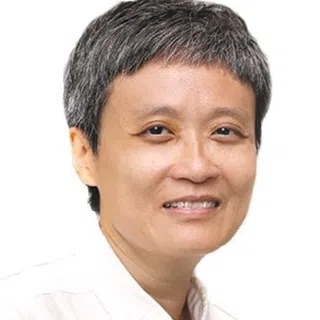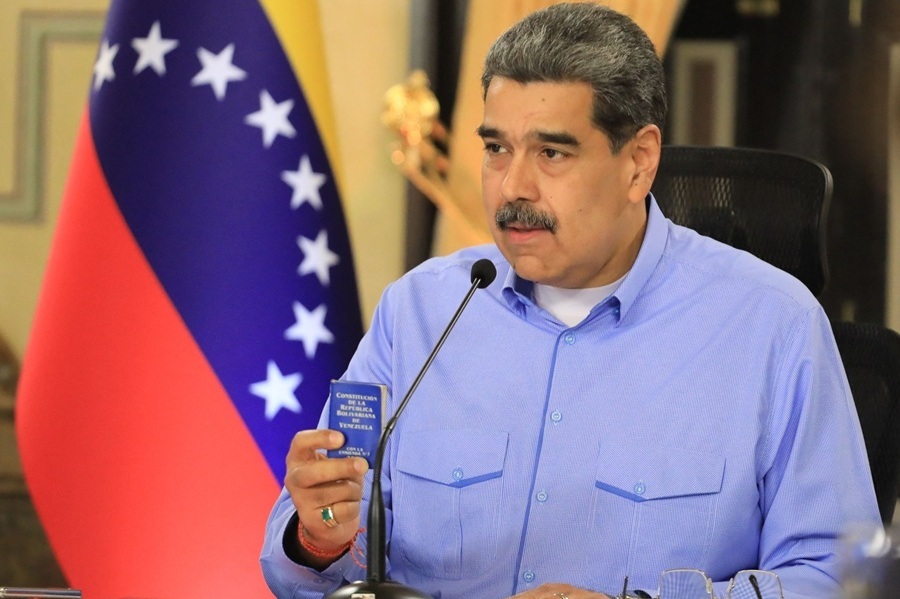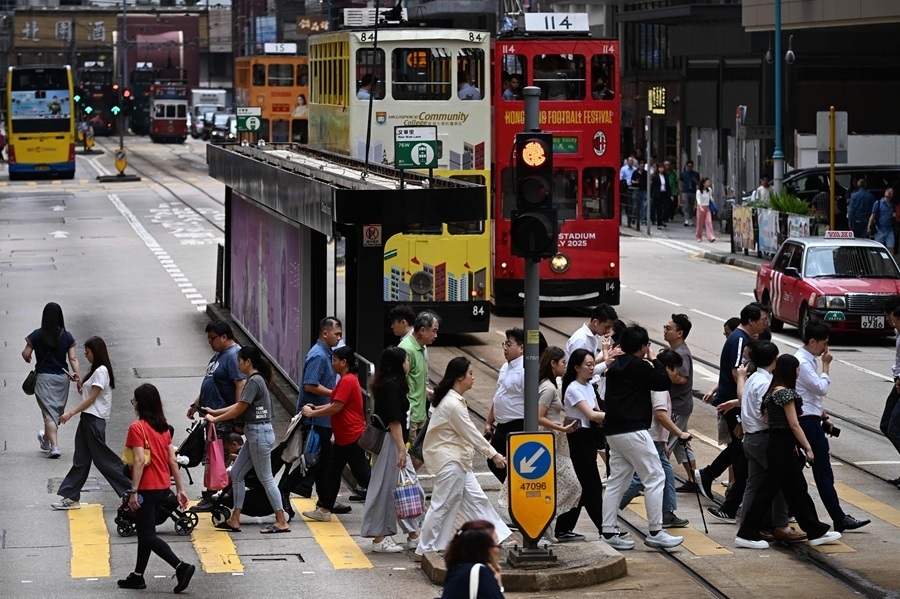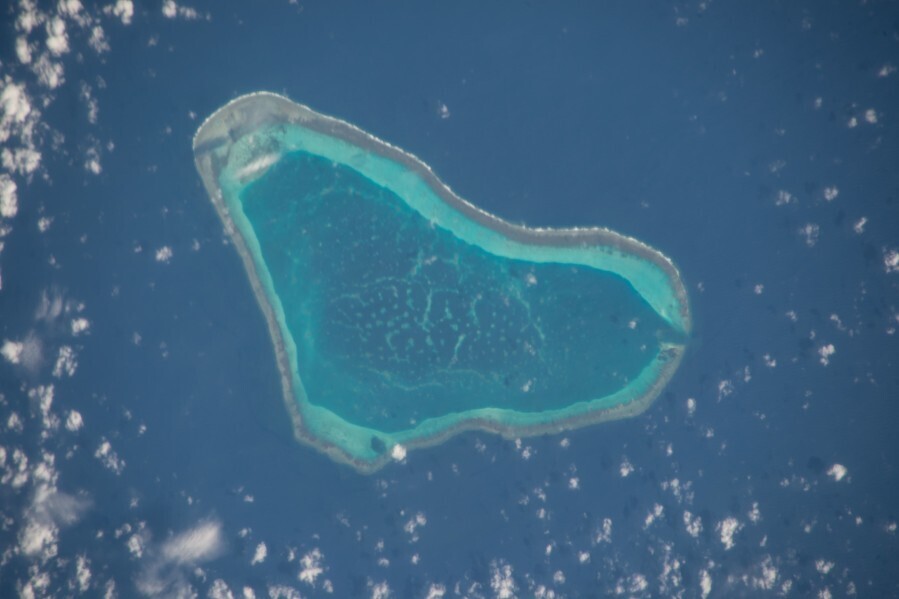Pyongyang first, Trump next: China’s North Korea card in the trade war shuffle
Chinese Premier Li Qiang’s visit to North Korea ahead of President Xi Jinping’s potential meeting with US President Donald Trump in South Korea mirrors what happened six years ago — is this a coincidence or a strategic move? Lianhe Zaobao correspondent Sim Tze Wei tells us more.
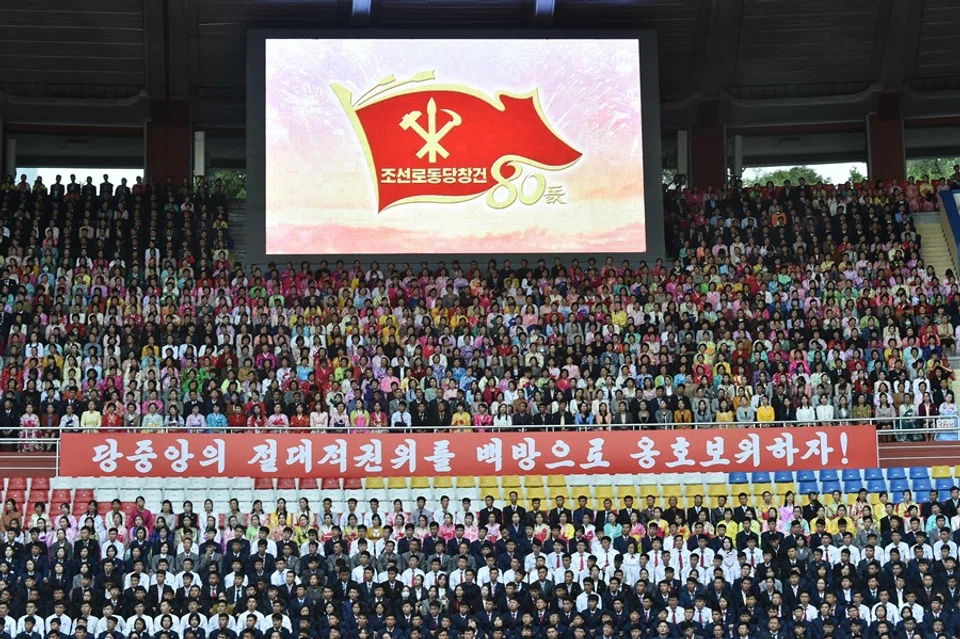
From 9 to 11 October, Chinese Premier Li Qiang will lead a party and government delegation on an official three-day goodwill visit to North Korea, in conjunction with the 80th anniversary celebrations of the Workers’ Party of Korea.
Attendance by Chinese premier instead of president
Following the tradition of staging bigger celebrations on every fifth anniversary and its multiples, Pyongyang is expected to conduct a military parade on 10 October or the night before, which Li is also set to attend.
This marks the first visit to North Korea by a Chinese premier in 16 years. The last visit was in October 2009, when then Premier Wen Jiabao paid an official goodwill visit, met with then leader Kim Jong Il, and attended events marking the 60th anniversary of China-North Korea diplomatic ties and the closing ceremony of the China-North Korea Friendship Year.
In fact, over the past two decades, it has been unprecedented for China’s top leader to attend a North Korean party anniversary parade.
Chinese Communist Party (CCP) General Secretary and President Xi Jinping last paid a state visit to North Korea in June 2019, coinciding with the 70th anniversary of diplomatic relations between the two countries. That visit remains Xi’s only trip to North Korea since becoming China’s top leader in 2012.
Following North Korean leader Kim Jong Un’s visit to Beijing earlier to attend the 3 September military parade, there has been speculation over whether Xi, along with Russian President Vladimir Putin, would return the gesture by attending the Workers’ Party anniversary celebrations. Could a symbolic image of the three leaders standing side by side, echoing Cold War-era “alliance”, reappear in Pyongyang within just over a month?
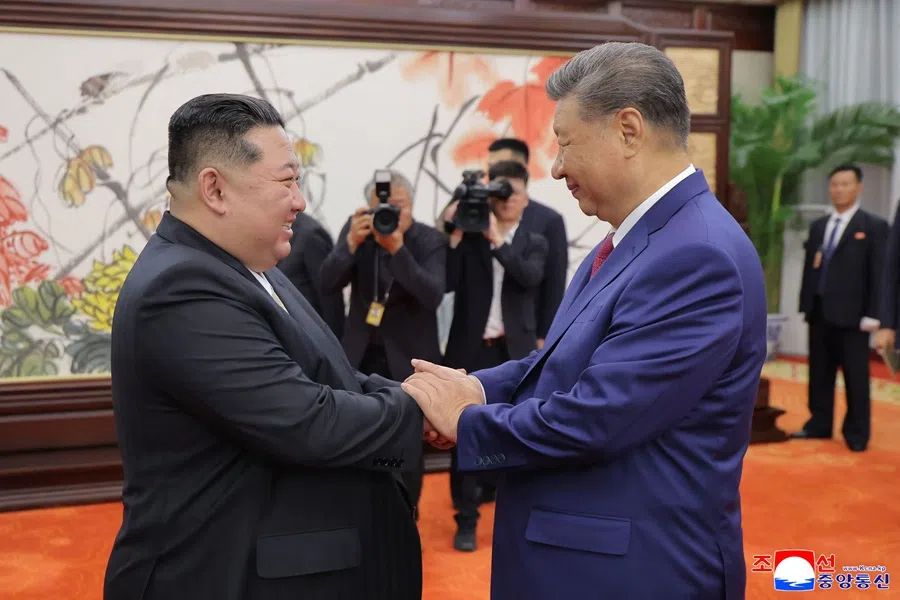
China and Russia have both officially confirmed that neither country’s top leader will attend the celebrations. Russia will be represented by former president and current deputy chairman of the Security Council, Dmitry Medvedev. Some analysts suggest that both Beijing and Moscow wish to avoid the optics of North Korean leader Kim Jong Un standing at the centre, flanked by the leaders of the two “big brothers” China and Russia.
In fact, over the past two decades, it has been unprecedented for China’s top leader to attend a North Korean party anniversary parade. According to public sources: for the 75th anniversary in 2020, China did not send any delegation due to North Korea’s border closure during the pandemic; the 70th anniversary in 2015 was attended by Liu Yunshan — then the fifth-ranking Politburo Standing Committee member and secretary of the Secretariat of the Central Committee; for the 65th anniversary in 2010, China was represented by Zhou Yongkang, then Politburo Standing Committee member and secretary of the Central Political and Legal Affairs Commission; and then Vice-Premier Wu Yi attended the 60th anniversary in 2005.
It signals a warming of China-North Korea relations, and Beijing’s response to Kim Jong Un’s attendance at China’s 3 September military parade.
This time, China is sending Li Qiang, the second-ranking member of the Politburo Standing Committee, to attend North Korea’s party anniversary parade — the highest-level Chinese representation at such an event in the past two decades. It signals a warming of China-North Korea relations, and Beijing’s response to Kim Jong Un’s attendance at China’s 3 September military parade.
Previously, closer ties between Pyongyang and Moscow — particularly North Korea’s military support for Russia — had cast a shadow over China-North Korea relations. South Korean media even reported last year that Kim Jong Un instructed North Korean diplomats in China “not to mind China”.
China’s focus on domestic affairs
The absence of China’s top leader from this visit to North Korea is not unexpected. Compared with the decade before the 20th Party Congress in 2022, Xi has made noticeably fewer overseas trips in recent years. Meanwhile, Premier Li has taken on a number of key diplomatic engagements, including attending the G20 Summit in India in 2023, the BRICS Summit in Brazil this July, and the general debate of the 80th session of the United Nations General Assembly in New York this September. This year’s China-EU Summit, originally scheduled to be held in Brussels, has also been relocated to Beijing.
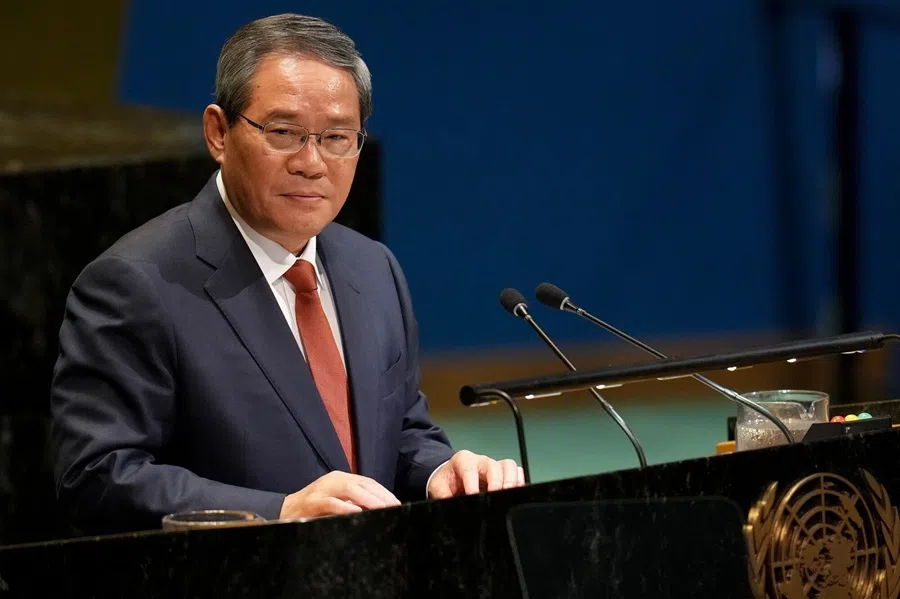
The Wall Street Journal quoted academics who analysed that one reason the top Chinese leadership has reduced foreign visits could be to focus on domestic affairs, such as economic issues. Indeed, the Fourth Plenary Session of the CCP’s 19th Central Committee is set to convene on 20 October, where discussions would include the 15th Five-Year Plan for economic and social development — given that there are only about ten days between the plenary session and the North Korean visit, this may explain why the CCP’s paramount leader chose not to make the trip.
However, according to South Korean media, Xi is expected to attend the Asia-Pacific Economic Cooperation (APEC) meeting in Gyeongju, South Korea, at the end of the month, where he will meet with US President Donald Trump and South Korean President Lee Jae-myung. In this context, Premier Li’s visit to Pyongyang is seen as a move by Beijing to balance its geopolitical priorities.
... a Chinese Foreign Ministry spokesperson emphasised China’s intention to use Premier Li’s visit as an opportunity to “enhance strategic communication” and “strengthen exchanges and cooperation” with North Korea.
Li Qiang’s inaugural visit to North Korea as premier also raises key questions, including whether China and North Korea will sign cooperation agreements on economic, trade and cultural issues.
North Korean Foreign Minister Choe Son-hui has visited China twice within a month, and a Chinese Foreign Ministry spokesperson emphasised China’s intention to use Premier Li’s visit as an opportunity to “enhance strategic communication” and “strengthen exchanges and cooperation” with North Korea. This suggests that some negotiated outcomes could be announced during Li’s visit.
Additionally, the new head of the International Liaison Department of the CCP, Liu Haixing, is expected to make his first appearance in North Korea in this new role. Traditionally, the International Liaison Department manages China-North Korea relations.
With former head Liu Jianchao’s future unclear and Chinese Foreign Minister Wang Yi preoccupied with visits in Europe, Liu’s appointment before China’s National Day holiday allows him to accompany Li on his visit to North Korea once the holiday ends.
Balancing North Korea and the US
For Beijing, Li’s visit to North Korea before the APEC meeting in South Korea is both an opportunity and a challenge.
Six years later, the striking similarity between the two scenarios suggests that it is more than mere coincidence; it likely reflects Beijing’s strategic use of the “North Korea card” in its dealings with the US.
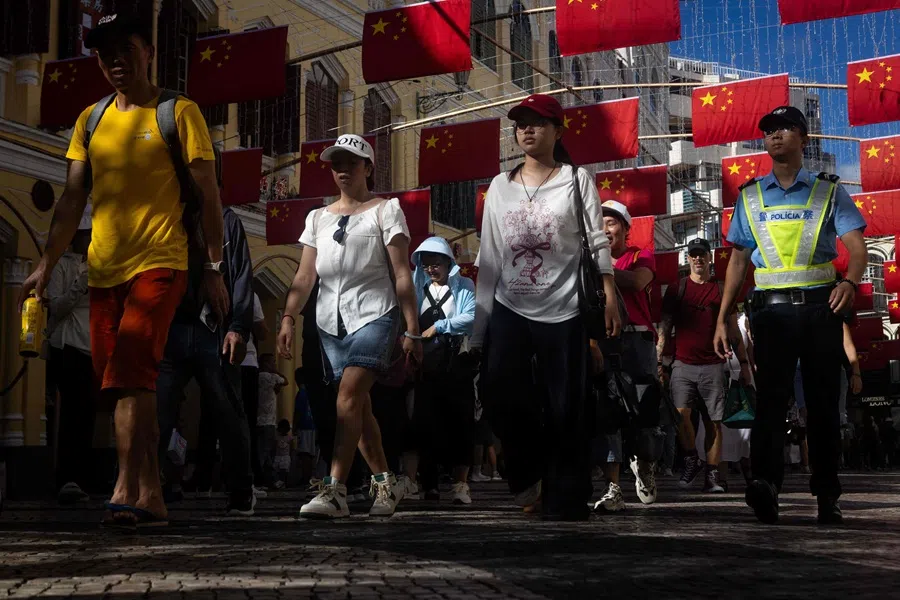
Much like during Xi’s 2019 visit to North Korea, China is once again navigating a trade war initiated by the Trump administration. Following Li’s visit to North Korea, the highly anticipated “Xi-Trump meeting” is expected to take place in South Korea. In 2019, Xi spent two days in North Korea starting 20 June, and less than ten days after meeting Kim Jong Un, he met President Trump at the G20 summit in Osaka on 29 June.
Six years later, the striking similarity between the two scenarios suggests that it is more than mere coincidence; it likely reflects Beijing’s strategic use of the “North Korea card” in its dealings with the US.
The Chinese leader’s trip to North Korea is both a diplomatic showcase and a strategic manoeuvre — it is a reminder to the US that while denuclearisation of the Korean Peninsula would be difficult, China still holds significant influence over North Korea. Beijing’s constant presence in Korean Peninsula affairs enables it to hold more leverage in negotiations with the US, pushing the US for concessions on major or core issues as defined by China.
Yet, if the visit to North Korea is framed in Western narratives as part of a China-Russia-North Korea alliance challenging the Western bloc, it could hamper China’s ability to engage in economic and trade cooperation with some European countries and South Korea. Such strategic implications would not benefit China. How to effectively play the North Korea card thus becomes a tall task that requires careful balancing.
This article was first published in Lianhe Zaobao as “李强访朝与北京的朝鲜牌”.
